A General Review on How to Check and Diagnose Heart Inflammation
How do you test for heart inflammation? What does the heart inflammation test procedure look like? Check out this article to discover more.
The human gut comprises the small and large intestines, which are host to trillions of microscopic bacteria that make up the gut microbiome. This community of bacteria consist of ‘good’ and ‘bad’ microorganisms that influence numerous processes, including food digestion, nutrient absorption, metabolism function, immunity and the extent of inflammation in the body.
Around 70% of the immune system is located within the gut microbiome, which triggers an inflammatory response to protect the body whenever it detects foreign pathogens, infections, illness and injury.
This temporary immune response is crucial to keeping the body healthy. However, an overactive immune system identifies certain innocuous stimuli, such as foods and environmental particles or chemicals, as harmful foreign entities and unnecessarily mounts an attack upon detecting them.
A persistently overactive immune system disrupts the delicate balance of ‘good’ and ‘bad’ gut bacteria (also known as gut dysbiosis) and compromises the integrity of the gut lining, resulting in toxins leaking into the bloodstream and causing chronic inflammation.
Gut dysbiosis can manifest in many ways and is often the underlying cause of a whole host of health conditions, such as blood sugar imbalance, skin issues, joint pain, PMS, constipation, diarrhoea, irritable bowel syndrome, fatigue, nausea, irregular periods and others.
There are several ways to improve gut health and reduce inflammation. This article explores natural gut health remedies that can help to improve the gut microbiome and heal the gut naturally.
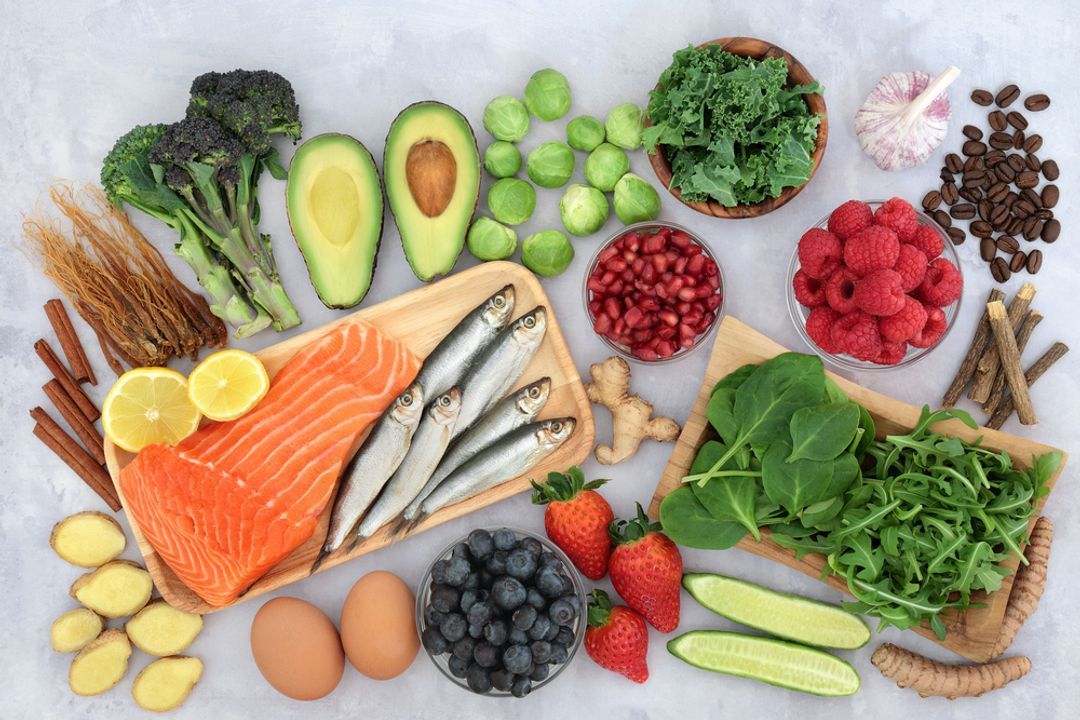 There is a consensus amongst experts that the Mediterranean diet is effective in boosting antioxidants and reducing inflammatory markers in the body [1].
There is a consensus amongst experts that the Mediterranean diet is effective in boosting antioxidants and reducing inflammatory markers in the body [1].
This type of diet focuses on a wide variety of nutrient-dense whole foods that provide a healthy balance of protein, fibre, complex carbohydrates, healthy fats, and essential vitamins and minerals while eliminating processed foods high in sugar, refined carbs and trans fats.
To improve gut bacteria and heal gut inflammation, follow a diet that contains plenty of the following anti-inflammatory foods:
Fruit: A wide range of colourful fruits, including strawberries, blueberries, grapes, pomegranates, cherries, oranges, etc.
Vegetables: Dark leafy greens, broccoli, cabbage, Brussels sprouts, cauliflower, tomatoes, beetroot, etc.
Wholegrains: Rye, oat, barley, quinoa, buckwheat, brown rice, and teff.
Healthy fats: Olive oil, coconut oil, avocados, olives, salmon, tuna and mackerel.
Legumes, nuts, and seeds: beans, pulses, lentils, flaxseeds, chia seeds, walnuts, Brazil nuts, almonds, pumpkin seeds, sunflower seeds, etc.
Spices: Ginger, garlic, turmeric, cinnamon, cloves, fenugreek, etc.
Tea: Green tea, white tea and black tea.
Certain foods are strongly associated with chronic inflammation and disease, and in order to effectively reduce gut inflammation, it is important to minimise such foods or consider removing them from your diet altogether.
These culprit foods include: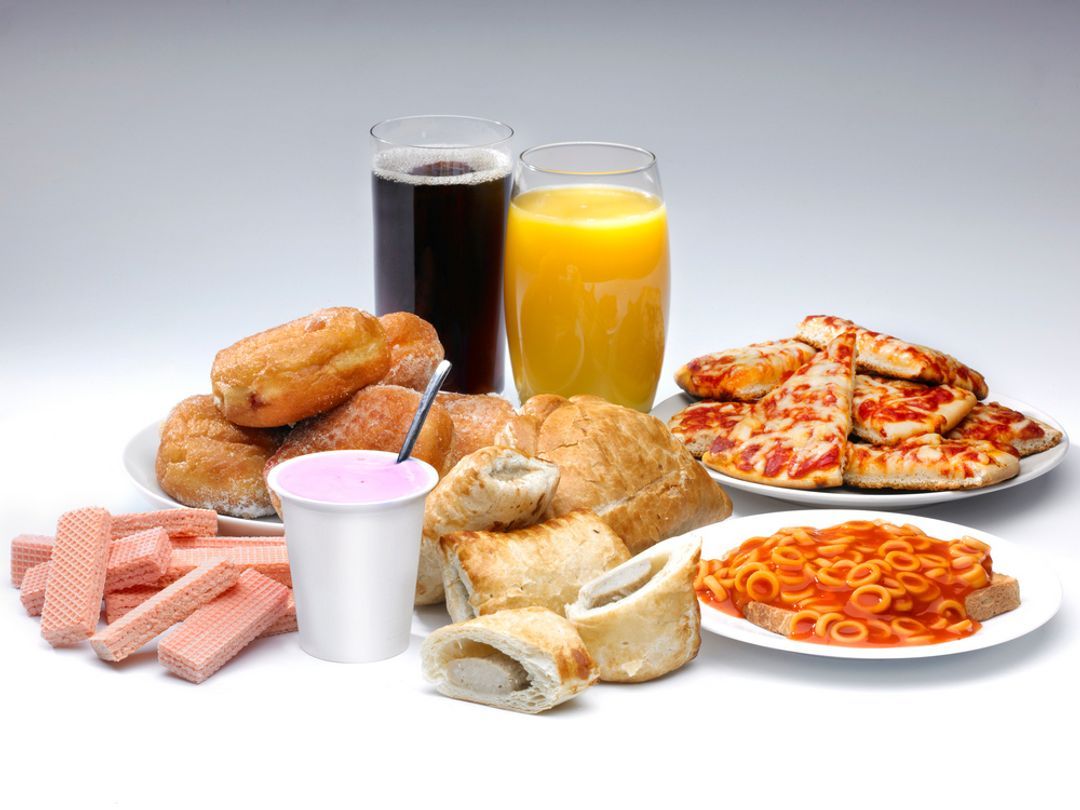
Refined carbs: White bread, white pasta, white rice, bagels, waffles, croissants, sweetened cereals, noodles, etc.
Processed foods: Packaged and frozen foods and items containing artificial sweeteners and chemicals.
Fried foods: French fries, deep-fried chicken, onion rings, calamari, deep-fried vegetables, etc.
Processed meats: Hot dogs, sausages, bacon, chicken nuggets, meat burgers, deli meats, etc.
Desserts: Cakes, biscuits, cookies, chocolate, ice cream, sweets, etc.
Snacks: Crisps, crackers, pretzels, breadsticks, etc.
Vegetable oils: Soybean oil, corn oil, cottonseed oil, peanut oil, etc.
Sugary beverages: fizzy drinks, concentrated juices, energy drinks, etc.
Excessive alcohol consumption.
In addition to eliminating pro-inflammatory foods from the diet, it may also be worth reducing and/or removing certain other foods that aren’t necessarily unhealthy but may, in some individuals, contribute to gut inflammation. These include:
Soy
Dairy
Gluten
Citrus fruits
Nightshade vegetables
Stop eating the specific foods for two to three weeks before slowly reintroducing them into your diet over the course of two to three days while noting any changes to your health conditions throughout the process.
Constantly high levels of stress activate proinflammatory molecules in the gut, negatively influencing the microbiome and thereby increasing chronic inflammation. Moreover, evidence suggests that excessive stress impairs the vagus nerve, which connects the brain to the gut, in a similar way to environmental toxin overload, consequently preventing the gut from functioning optimally [2].
For this reason, it is important to engage in activities that take the body out of the stress-based fight-or-flight mode in order to help improve gut health. In fact, stress-reducing practices have been shown to decrease levels of faecal calprotectin, which is used to measure gut inflammation, by calming the gut-brain connection and restoring immune balance within the gut [3]. 
Try the following activities to help manage stress levels:
Meditation
Mindfulness
Deep breathing
Yoga
Massage therapy
Journaling
Spending time in nature
Taking a warm bath
Aromatherapy
Engaging in a hobby.
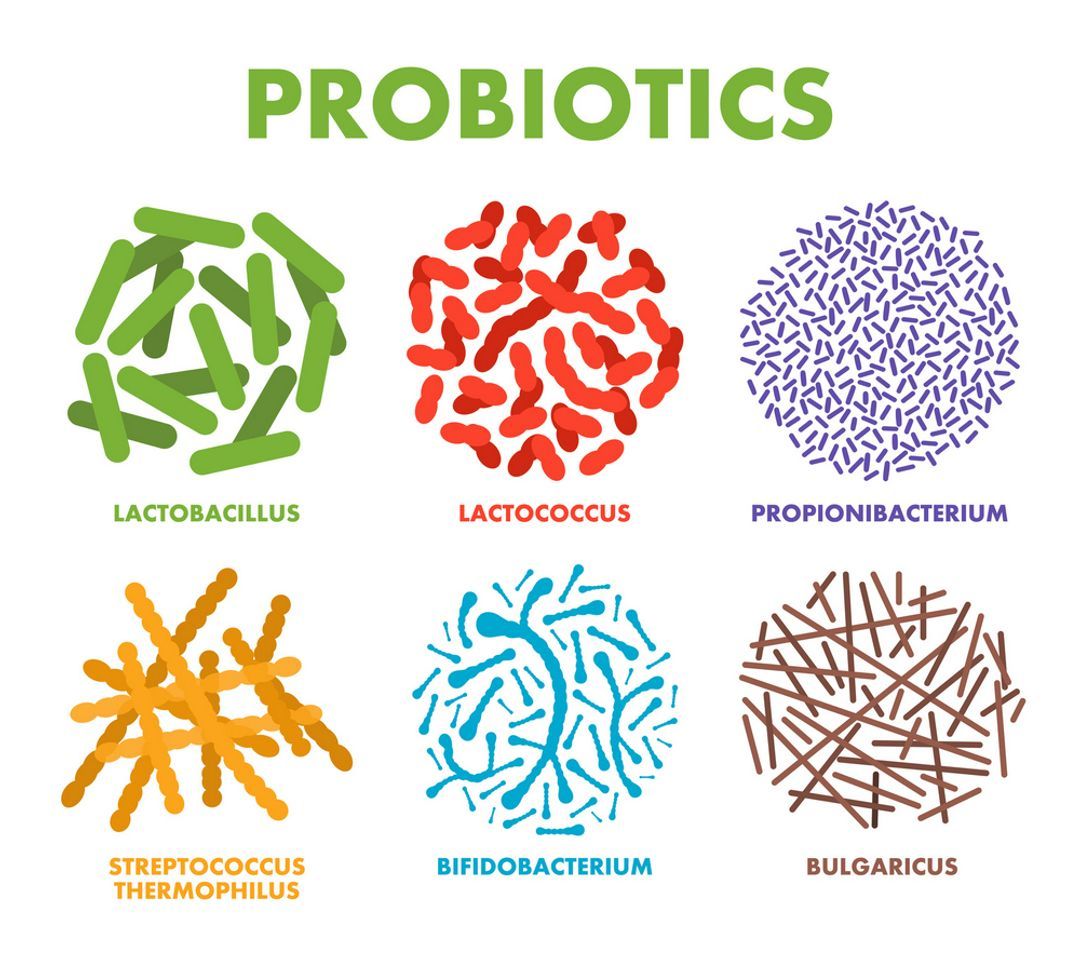
Probiotic foods and supplements offer powerful support for your body by containing strains of live ‘good’ bacteria that replenish the gut and simultaneously fight ‘bad’ bacteria. Each species of probiotic serves a different purpose with regard to addressing health conditions.
Evidence suggests that probiotics can help improve immune function and reduce systemic inflammation. More specifically, probiotics can help combat symptoms of irritable bowel syndrome (IBS), including gas, diarrhoea, constipation, bloating and other inflammatory bowel diseases, such as Crohn’s disease and ulcerative colitis [4].
While probiotic supplements can lead to better gut health, it’s worth noting that many supplements on the market are unable to bypass stomach acid to reach the colon, where they can do their job. For this reason, it may be beneficial to consume probiotic-rich foods instead, such as:
Yoghurt with no added sugar
Kefir
Apple cider vinegar
Kombucha
Kimchi
Miso
Sauerkraut
Fermented pickles.
Prebiotic foods consist of dietary fibres that provide essential fuel to the microorganisms that already exist within the gut. It’s important to consume a wide range of plant-based fibres to ensure microbiome diversity. The main prebiotic sources include:
Flax seeds
Chia seeds
Legumes
Onions and garlic
Underripe bananas
Whole oats
Apples
Asparagus
Artichokes
Chicory root.
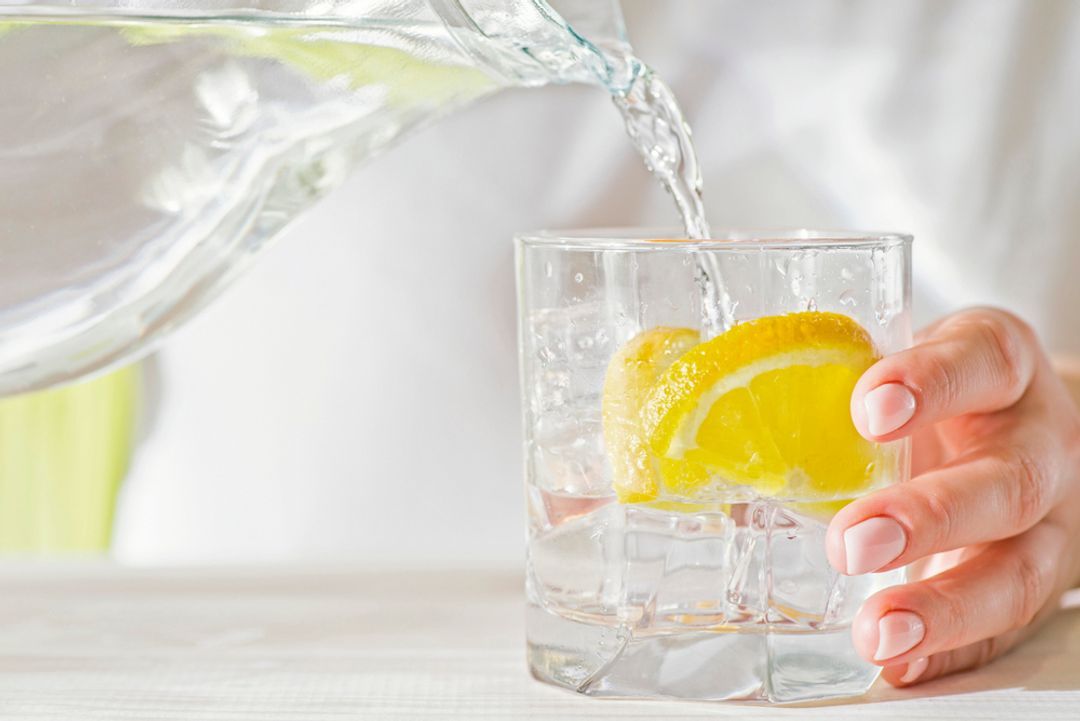 Drinking plenty of water is crucial in preventing digestive issues, improving nutrient absorption, promoting a healthy gut and flushing out toxins that contribute to inflammation.
Drinking plenty of water is crucial in preventing digestive issues, improving nutrient absorption, promoting a healthy gut and flushing out toxins that contribute to inflammation.
Moreover, dehydration can cause stools to harden and make it difficult to pass through the intestine, thereby preventing toxins from being eliminated and creating a hostile environment for beneficial gut microbiomes.
On average, it is recommended to drink around 1.5 litres of water per day; however, you may need more depending on your fibre intake, level of physical activity, body mass, climate, and whilst pregnant or breastfeeding.
Consider the following tips for keeping hydrated:
Drink small amounts of water at regular intervals throughout the day rather than drinking large amounts all at once.
Try infusing your water with fresh fruits and herbs to add flavour and a boost of nutrients, such as cucumber, lemon, mint, berries, etc.
Eat fruits and vegetables with a high water content, such as celery, tomatoes, cucumbers, radishes, watermelon, lettuce, etc.
Try to avoid tap water as it contains chlorine, fluoride, lead and other harmful chemicals that can disrupt the gut microbiome.
 Research confirms that regular exercise reduces inflammatory markers to preserve gut health and protect against chronic disease.
Research confirms that regular exercise reduces inflammatory markers to preserve gut health and protect against chronic disease.
For instance, a 2008 study on mice found that exercise increased bacterial strains that produce a type of short-chain fatty acid called butyrate. This acid is the primary fuel for gut cells, helps control gut barrier function, and regulates gut inflammation and immune cells [5].
The study also found that sedentary mice had higher numbers of a specific strain of ‘bad’ bacteria called Turicibacter, which is linked to an increased risk of bowel disease.
It is recommended to engage in at least 150 minutes of moderate to vigorous physical activity each week, ranging from aerobics, resistance training and weight training, depending on your capabilities.
Sleep is extremely important for the body to restore and repair itself, and there is a bi-directional relationship between sleep and the gut microbiome.
Poor-quality sleep is known to deteriorate gut health and increase the number of inflammatory proteins (cytokines) throughout the body by decreasing the diversity of bacteria – decreasing ‘good’ species while simultaneously increasing ‘bad’ bacterial populations. The negative impact on the ‘good’ bacteria inhibits the production of butyrate 
Moreover, a healthy gut contributes to improved sleep quality. A 2020 study of young, healthy adults found that participants who reported better quality sleep had higher levels of two bacterial strains, Blautia and Ruminococcus, compared to those who experienced poor-quality sleep [6].
It is recommended that adults get seven to nine hours of good-quality sleep each night to promote gut health and reduce inflammation.
In addition to eating healthy whole foods, supplements can be an effective way to fill any nutritional gaps in your diet, reduce inflammation and help strengthen the lining of the gut.
The main supplements with research supporting their use for reducing gut inflammation include: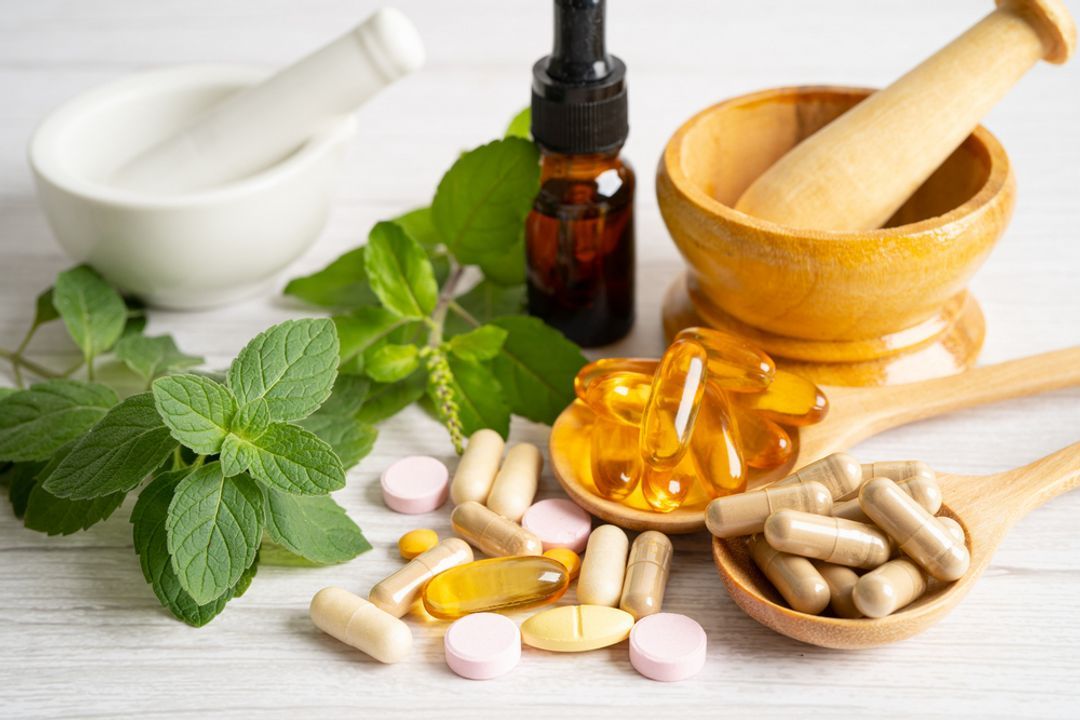
Fish oil
Curcumin
L-glutamine
Prebiotics and probiotics
Boswellia
Peppermint
Oregano oil
B vitamins
Magnesium
Vitamin D
Digestive enzymes.
Although supplements can be beneficial in reducing inflammation in the gut and promoting overall health, it is recommended to consult your doctor before incorporating them into your diet to determine whether you may benefit from them, as some may make symptoms worse.
It is also important to be selective with the products and brands you choose as they can differ in quality, concentration of ingredients and may oversell the benefits through misleading health claims.
Excessive exposure to environmental toxins in the modern world causes structural and functional alterations in the gut microbiome, contributing to hormonal imbalances, gut inflammation and autoimmune disorders. Persistent exposure over time also increases susceptibility to chronic diseases, such as diabetes, obesity, heart disease and cancer.
Moreover, toxicity from such chemicals increases exposure to xenoestrogens, which mimic oestrogen in the body, leading to oestrogen dominance and disrupting homeostasis within bodily functions and systems.
The most common microbiome-destroying environmental toxins include:
Triclosan: Often found in personal hygiene products, such as toothpaste, shampoo, deodorant, soap and mouthwash.
Pesticides: Usually sprayed on non-organic fruit and vegetable produce.
BPA: Found in plastic bottles and containers and canned foods.
Heavy metals: Including cadmium, lead and arsenic – are commonly found in soil and tap water due to industrial pollution.
Reducing exposure to environmental pollutants is crucial to protecting gut health. Consider implementing the following strategies to protect your microbiome from toxins:
Use natural, non-toxic and plant-based cleaning products.
Use natural and healthy body care products.
Consume organic produce as much as you can.
Use glass or stainless steel bottles and containers.
Consider investing in a high-quality water filter for taps and showerheads.
An optimally-functioning gut and liver are crucial components in the body’s detoxification system The body is fully equipped to eliminate toxins efficiently. However, an overload of pollutants and toxins from food sources, cleaning products, and the environment can cause these organs to become sluggish and operate at reduced capacity. 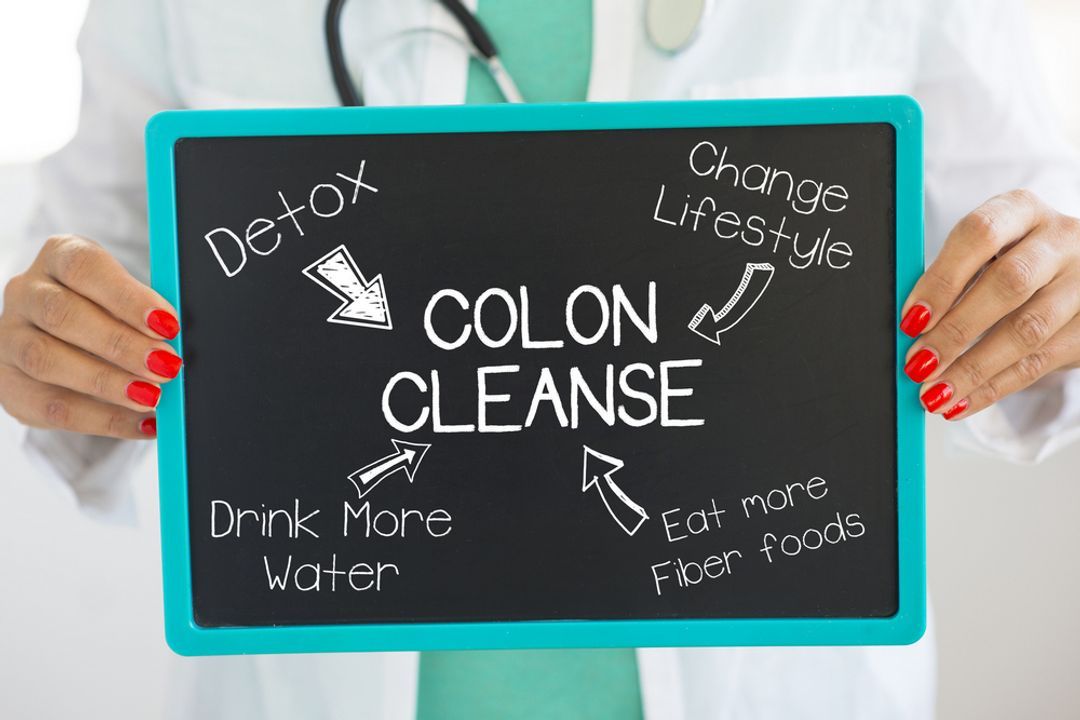
Taking part in a detox program two to three times a year can aid the liver in the detoxification process and reduce the negative impact on the gut microbiome.
In addition to eating a high-fibre, wholefood diet and drinking plenty of water, there are medical foods and supplements containing specific nutrients that are clinically proven to accelerate the body’s natural toxin elimination process.
Many experts agree the following supplements can be helpful for cleansing the body of toxins:
Activated charcoal
Dandelion greens
Spirulina
Psyllium husk
Milk thistle
Slippery elm
Turmeric
Green tea.
Intermittent fasting has also shown benefits in reducing inflammation by inhibiting the circulation of pro-inflammatory molecules in the blood.
The gut is the cornerstone of good health, and its function goes well beyond digesting food and managing waste. The ecosystem of microorganisms that comprise the gut microbiome plays an indispensable role in absorbing nutrients, protecting against foreign invaders and keeping numerous bodily functions in check.
Poor diet, lack of sleep, stress, and toxin overload can throw off the delicate balance of this complex system, resulting in increased gut permeability and an impaired immune system, potentially causing chronic inflammation and disease.
The GlycanAge test measures chronic inflammation in the body, thus assessing the state of the immune system and overall health.
The test provides you with data you can use to improve your lifestyle and make personalised and informed decisions to prevent chronic disease and optimise your healthspan as you get older.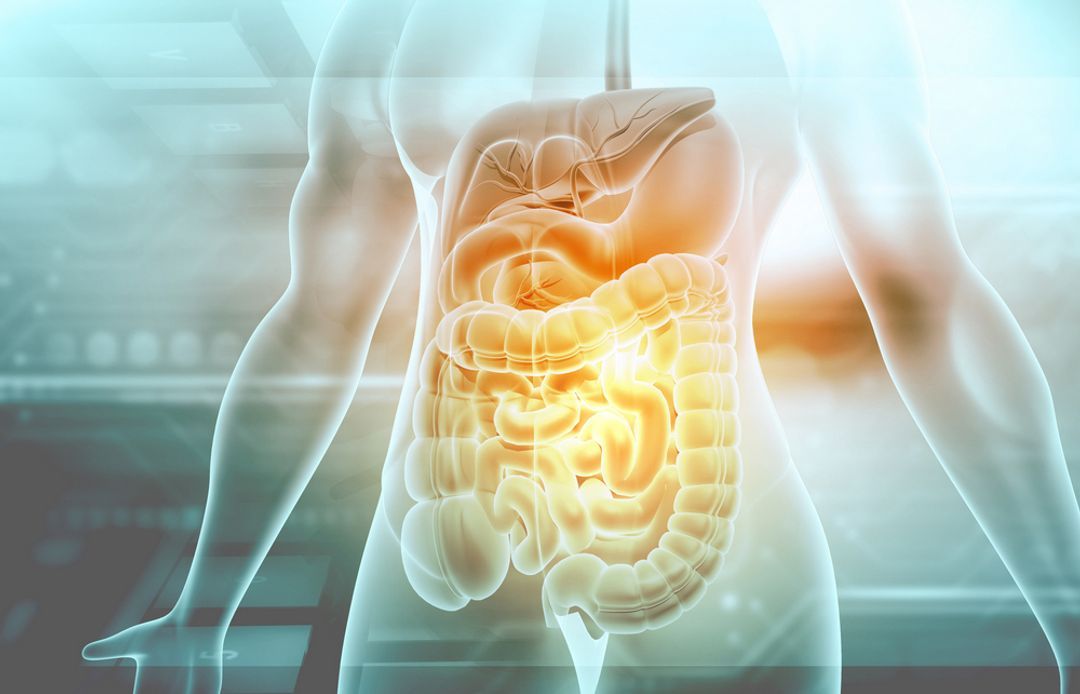
Once you receive your home testing kit, all you need to do is a simple finger prick test and send the results back to the lab. After 3-5 weeks of rigorous analysis to obtain the most accurate readings, your report will be ready.
You will also receive a complimentary 1-1 consultation with a scientist and/or healthcare professional to understand your results, devise an action plan to maintain or improve your biological age and optimise your overall wellness.
Several packages are available to buy, depending on your budget and where you are on your wellness journey. Start your wellness journey today by ordering your GlycanAge home testing kit.
There are several tell-tale signs which, if persistent, may be a sign of an unhealthy and inflamed gut, including:
Diarrhoea
Constipation
Bloating and gas
Abdominal cramps
Loss of appetite
Fatigue
Headaches
Brain fog
Skin issues
Weight gain or loss
Insomnia
Food intolerances and/or cravings
Allergies.
Depending on the extent of inflammation in the gut and the underlying cause, it can take anywhere between a few weeks to a few years to repair the gut lining and rebuild a healthy microbiome. It is important to adopt the correct healthy habits, such as eating a nutrient-dense diet, prioritising sleep, managing stress and reducing exposure to toxins, to support and accelerate the healing process.
If you’re interested in learning about the state of your gut health, speak with your doctor to conduct a faecal microbiome test. This test requires a stool sample to be collected in a container and sent to a lab for analysis, and it can accurately identify gut microbiome composition as well as the presence of any infections or viruses. To see whether your gut lining is intact, you can choose to test your blood or faecal zonulin level, which, if the gut lining is compromised, will return an abnormally high value.
https://pubmed.ncbi.nlm.nih.gov/36039924/ https://www.ncbi.nlm.nih.gov/pmc/articles/PMC5808284/ https://www.nature.com/articles/s41598-020-63168-4#citeas https://www.mdpi.com/2072-6643/11/9/2048/html https://www.frontiersin.org/articles/10.3389/fimmu.2018.01832/full https://www.sciencedirect.com/science/article/abs/pii/S1389945720301805?casa_token=Mwzqf_dNCKAAAAAA:PhYlQ5Li4jBVJED0z-q8bIbLSJX4jDmNO1BDtBIJUh4zW3gtDQbTB53XJyF7Wq-h5UNCW5V2lA

Start or continue your GlycanAge journey
Don’t be afraid to reach out to us and ask questions, provide commentary or suggest topics.
Other articles you may like:
How do you test for heart inflammation? What does the heart inflammation test procedure look like? Check out this article to discover more.
What is the fastest way to reduce inflammation in the body? How do you stop inflammation fast? Click here to learn how to treat chronic inflammation.